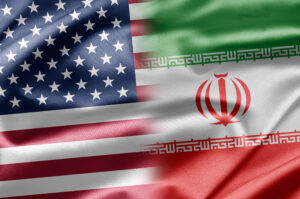
Managing Partner
The U.S. Department of the Treasury’s Office of Foreign Assets Control (OFAC) announced on October 20 that it was imposing a $4.1 million penalty against Omaha, Nebraska-based Berkshire Hathaway Inc., its subsidiary MC International Metalworking Companies B.V. (“IMC”) and IMC’s wholly owned Turkish subsidiary, Iscar Kesici Takim Ticareti ve Imalati Limited Sirket (“Iscar Turkey”) for illicit transactions by Iscar Turkey with Iran. Iscar Turkey is in the business of manufacturing machinery, specifically cutting tools and inserts. The violations took place between 2012 and 2016, with Iscar Turkey entering into 144 transactions with Iran over that period. While announcements of OFAC penalties for sanctions violations are not rare, this one has a few notable points.
Oftentimes, such violations emanate from misunderstanding by local managers and employees who may be less trained or aware of U.S. sanctions and their extraterritorial reach. In this case, the knowledge appears to have existed, as there were clear warnings coming from the United States not to violate applicable sanctions. Iscar Turkey’s local manager thought in 2012 that European Union and U.S. sanctions on Iran would ultimately be lifted, and to prepare for what he thought would be an opening of a significant market, began low level trade with Iran, using Euro-denominated payments and falsified invoices from Turkish companies to hide that the shipments were going to Iran. This was coupled with other actions, including travel to Iran. The total value of the 144 shipments was $383,443.

At first glance, the fact pattern does not particularly stand out. Iscar Turkey is now one of a number of Middle Eastern operations cited for engaging in prohibited trade with Iran. However, the case features numerous key takeaways which should be of significance to companies keen on establishing or bolstering compliance programs and strategies.
Transaction Value versus Penalty Amount
The $383,443 transaction value provided in the Settlement Agreement constitutes roughly 9% of the final penalty amount settled with OFAC – $4,144,651. However, penalties are not the only cost such companies incur when cited for violations. In high likelihood, legal fees and internal reviews may have been significant. Iscar Turkey’s response and reaching of a settlement with OFAC likely required substantial effort – which is generally costly and perhaps equally if not importantly, very costly in terms of personnel time spent handling such a matter, from management dealing with counsel, to team members at Iscar that may have been interviewed and/or asked to produce documents as part of an internal review.
Voluntary Self-Disclosure
Notably, this case arose from a Voluntary Self-Disclosure (VSD) submitted to OFAC upon the parent discovering the violations at hand. This means the maximum penalty amount was already reduced by 50% as OFAC encourages such disclosures by offering submitters a 50% discount from that maximum, with other factors potentially also helping abate the total penalty imposed. OFAC itself mentions the base civil penalty amount was $18,420,672. Therefore, while this evidences that the submission of a VSD does not always result in a mere Cautionary Letter or Finding of Violation, penalties could have been much higher had OFAC learned about the activities at issue on its own absent a VSD. In all, it may be fair to conclude that Berkshire’s apparently pro-active response and the existing facts caused the 77%+ reduction in potential penalties.
Hefty Settlement Covenants
It is critical to take proper remedial steps upon discovering a violation. Beyond submitting the VSD, the actions Berkshire agreed to take as detailed in the Settlement Agreement appear considerable, and OFAC also mentions the company’s cooperation with the agency. The Settlement Agreement specifically mentions management commitment, imposing strict internal controls, better training, risk assessment, and testing and auditing. These are all fairly standard steps a company in such a position should take, but the granularity of the covenants in the Settlement Agreements highlights their importance.
Monitoring Internal Controls and Management Commitment
The above-mentioned settlement covenants that Berkshire agreed to includes the implementation of internal controls and management commitment. Importantly, OFAC’s discretion and monitorship of Berkshire’s internal controls and management commitment and determination of whether Berkshire is meeting its obligations is likely unprecedented for such a civil matter. This move by OFAC may be due to Iskar Turkey’s apparent lack of compliance program (normally, OFAC refers to companies’ compliance program in Settlement Agreements but there was no such mention here).
Berkshire had taken some precautions
Oftentimes fines can come from pure recklessness from the top down, but this does not appear to have been the case here. The parent knew about the application of the Iranian Transactions and Sanctions Regulations (the “ITSR”), the primary body of sanctions regulations applicable to most bilateral U.S.-Iran activities. Per the Settlement Agreement, “The Apparent Violations occurred under the direction of certain Iscar Turkey senior managers, despite Berkshire and IMC’s repeated communications to Iscar Turkey regarding U.S. sanctions against Iran and the application of the ITSR to Iscar Turkey’s operations.”
Like many cases before it, but in some ways more so, the lesson learned here is that the discovery of violations merit serious responses. While Iscar Turkey was the downstream subsidiary of a major, public U.S. corporation, it is still a foreign company. The transactions were not huge in value, and arguably not even a footnote for a company of Berkshire’s scale. Therefore, seeing this, one can imagine what the stakes could be for sanctions violations by U.S. persons in the United States.
Importantly, companies sometimes simply do not take sanctions and other trade violations seriously. While this can potentially be explained by several reasons, it prevents a serious response which can mitigate the penalty as well as reduce the likelihood of future violations, and it also prevents any key takeaways, unless perhaps OFAC responds by imposing a hefty penalty. Clearly not committing to serious compliance approaches can be damaging and can lead to violations. Not taking serious approaches can be far worse. Based on what is provided in the Settlement Agreement, Berkshire’s remedial approach appears to have likely been very thorough.
The lessons learned in this case are broad and extend far beyond Iran sanctions, which were far considerably narrower in scale during the time period the violations in this case occurred. The Settlement Agreement is very instructive about the agency’s approaches, which will perhaps be unaffected by the outcome of the upcoming presidential election.
For more information, contact Farhad Alavi at falavi@akrivislaw.com or 202.686.4859. This Client Alert is intended solely for informational purposes and should in no way be construed as legal advice. Every case varies and no outcomes described here is necessarily indicative of future results, and Akrivis in no way guarantees any outcomes. If you have any questions or are unclear on any of the subject matters addressed or discussed on this Client Alert, please consult a licensed legal professional.
